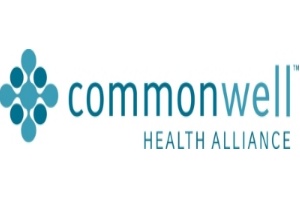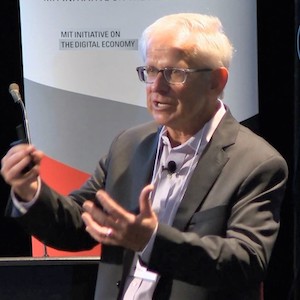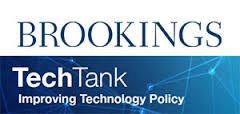health data sharing
See the following -
3 Global Health IT Takeaways You Need to Know - Reflections from ONC 3rd Interoperability Forum
 The Office of the National Coordinator for Health IT (ONC) engages in several global health IT projects from a United States government perspective. ONC works with global counterparts to share experiences, and ensure alignment between global interoperability efforts and the United States' approaches to interoperability. This includes working through worldwide partnerships, bi-lateral and multi-lateral engagements, global networks, and memoranda of understanding. Through these engagements, we focus on advancing common health data standards for global interoperability, enhancing individuals' access to their data, progressing healthcare providers' experiences, and improving factors associated with transparency and competition.
The Office of the National Coordinator for Health IT (ONC) engages in several global health IT projects from a United States government perspective. ONC works with global counterparts to share experiences, and ensure alignment between global interoperability efforts and the United States' approaches to interoperability. This includes working through worldwide partnerships, bi-lateral and multi-lateral engagements, global networks, and memoranda of understanding. Through these engagements, we focus on advancing common health data standards for global interoperability, enhancing individuals' access to their data, progressing healthcare providers' experiences, and improving factors associated with transparency and competition.
- Login to post comments
40 Healthcare Apps for Clinicians and Consumers to Know
It seems like every week in 2015 — if not most days — brought news of a new healthcare startup company whose app garnered millions in early funding. Not all of these apps will take off, and many are still vying to snag the dominant spot in their respective categories. For example, we don't yet know who will become the 'Uber of healthcare' yet, but a handful of companies with clever names and eye-catching platforms are aggressively grappling for the title. The same can be said for apps in the telehealth, prescription management, physician reference, patient portal and house call categories. Here are 40 apps to know from both the provider and patient sides, some of which just might end up edging out the rest come 2016...
- Login to post comments
Carequality and CommonWell Health Alliance Agree on Connectivity and Collaboration to Advance Interoperability
 CommonWell Health Alliance and Carequality announced today an agreement to increase health IT connectivity nationwide. The agreement provides additional health data sharing options to a broad range of stakeholders across healthcare, and has three aspects:
CommonWell Health Alliance and Carequality announced today an agreement to increase health IT connectivity nationwide. The agreement provides additional health data sharing options to a broad range of stakeholders across healthcare, and has three aspects:
- Login to post comments
Does your Healthcare Company have a Platform Business Model?
 Your Company Has A Technology Platform…But Do You Have A Platform Business Model and Strategy? Today in healthcare, platforms are understood mostly as technology. That’s not wrong, but it’s limiting and it misses a huge opportunity to adopt a platform business model. In most other industries platforms are also understood as a business model and strategy. Outside of healthcare, there are 45+ books focusing on this topic...A platform business model connects producers and consumers — creating an ecosystem that facilitates value exchange and interaction between them. Unlike traditional linear business models, where companies primarily produce and sell products or services directly to customers, platform models serve as intermediaries, making connections and facilitating interactions between two (or more) parties.
Your Company Has A Technology Platform…But Do You Have A Platform Business Model and Strategy? Today in healthcare, platforms are understood mostly as technology. That’s not wrong, but it’s limiting and it misses a huge opportunity to adopt a platform business model. In most other industries platforms are also understood as a business model and strategy. Outside of healthcare, there are 45+ books focusing on this topic...A platform business model connects producers and consumers — creating an ecosystem that facilitates value exchange and interaction between them. Unlike traditional linear business models, where companies primarily produce and sell products or services directly to customers, platform models serve as intermediaries, making connections and facilitating interactions between two (or more) parties.
- Login to post comments
Health Care Data as a Public Utility: How Do We Get There?
 Despite the technological integration seen in banking and other industries, health care data has remained scattered and inaccessible. EHRs remain fragmented among 861 distinct ambulatory vendors and 277 inpatient vendors as of 2013.Similarly, insurance claims are stored in the databases of insurers, and information about public health is often kept in databases belonging to various governmental agencies. These silos wouldn’t necessarily be a problem, except for the lack of interoperability that has long plagued the health care industry. For this reason, many are reconsidering if health care data is a public good, provided to all members of the public without profit...
Despite the technological integration seen in banking and other industries, health care data has remained scattered and inaccessible. EHRs remain fragmented among 861 distinct ambulatory vendors and 277 inpatient vendors as of 2013.Similarly, insurance claims are stored in the databases of insurers, and information about public health is often kept in databases belonging to various governmental agencies. These silos wouldn’t necessarily be a problem, except for the lack of interoperability that has long plagued the health care industry. For this reason, many are reconsidering if health care data is a public good, provided to all members of the public without profit...
- Login to post comments
Hyperledger Announces the Hyperledger Healthcare Working Group
Today, Hyperledger is announcing the formation of the Hyperledger Healthcare Working Group (HLHC Working Group)...The HLHC Working Group’s mission is to house and foster technical and business-level conversations about appropriate applications for blockchain technology in the healthcare industry. These conversations will be broad and educational, but will eventually focus on identifying opportunities for near-term collaboration between participants on common software to implement a given application. If appropriately scoped and resourced, these conversations could lead to one or more proposals for new software development efforts to be hosted at Hyperledger.
- Login to post comments
Surescripts Patient Survey Reveals Patient Demand Access to their Medical Records
 Health data-sharing technology exists today, yet patients are increasingly frustrated with their healthcare experience, according to a recent survey by Surescripts, the nation’s leading health information network. The 2016 Connected Care and the Patient Experience survey found that patients are particularly dissatisfied with the lack of a central location for their health records as well as the difficulty in accessing and sharing those records. Plus, they’re expecting to see digitized care settings in the very near future through the use of telehealth and other technologies...
Health data-sharing technology exists today, yet patients are increasingly frustrated with their healthcare experience, according to a recent survey by Surescripts, the nation’s leading health information network. The 2016 Connected Care and the Patient Experience survey found that patients are particularly dissatisfied with the lack of a central location for their health records as well as the difficulty in accessing and sharing those records. Plus, they’re expecting to see digitized care settings in the very near future through the use of telehealth and other technologies...
- Login to post comments
Task force summarizes barriers, mulls recommendations to improve EHR data sharing
Patient care coordination is the "key driver" to data sharing, but there are challenges to accomplishing that goal, according to the Health IT Policy Committee's task force on clinical, technical, organizational and financial barriers to interoperability. In its Aug. 25 meeting, the task force summarized information from hearings held earlier in the month regarding obstacles to electronic health record interoperability. Some of the major barriers to interoperability include the cost to interface, the lack of standards, the lack of infrastructure and platforms for interoperability, and the lack of a forum to pull together stakeholders.
- Login to post comments
The President’s Precision Medicine Initiative – The First Annual Check-Up
Watching President Obama’s recent 2016 State of the Union Address reminded me that one year has passed since the President announced a new “precision” or personalized medicine initiative to advance personalized, effective therapies for the American public. It was during his 2015 State of the Union Address that the President stated:[1]
“[T]onight, I’m launching a new Precision Medicine Initiative to bring us closer to curing diseases like cancer and diabetes, and to give all of us access to the personalized information we need to keep ourselves and our families healthier. We can do this.”...
- Login to post comments
US Defense Think Tank Calls for DoD to Adopt the Open Source VistA EHR and Avoid Closed and Proprietary EHRs.
 One of the most prestigious U.S. defense think tanks, the Center for a New American Security (CNAS), issued a white paper Thursday calling on the Department of Defense (DoD) to replace their existing dysfunctional “vendor-lock” medical records system with an electronic health records system (EHR) that is "extensible, flexible and easy to safely modify and upgrade as technology improves and interoperability demands evolve." The white paper warns that a "closed and proprietary" commercial EHR - such as the ones offered by Epic, Cerner or Allscripts - will lead to "vendor-lock” and isolation of health data. Read More »
One of the most prestigious U.S. defense think tanks, the Center for a New American Security (CNAS), issued a white paper Thursday calling on the Department of Defense (DoD) to replace their existing dysfunctional “vendor-lock” medical records system with an electronic health records system (EHR) that is "extensible, flexible and easy to safely modify and upgrade as technology improves and interoperability demands evolve." The white paper warns that a "closed and proprietary" commercial EHR - such as the ones offered by Epic, Cerner or Allscripts - will lead to "vendor-lock” and isolation of health data. Read More »
- Login to post comments
What Feds' Push To Share Health Data Means For Patients
Two years ago, when the federal government first released data on how much Medicare paid physicians, the media coverage was widespread. Doctors who earned significant sums were dubbed "Medicare millionaires" and journalists highlighted unusual patterns in how some doctors bill for services. When Medicare released its third round of data last Thursday, the coverage was practically nonexistent. In some ways, that's because data releases from the Centers for Medicare and Medicaid Services have become almost routine...
- Login to post comments
Where did the issue of health data exchange disappear to?
There has been extensive talk about the scandals at the VA and remedies for them, including the political and financial ramifications of partial privatization. Republicans have suggested it for some time, but for the solution to be picked up by socialist Independent Senator Bernie Sanders clinches the matter. What no one has pointed out yet, however–and what makes this development relevant to the Datapalooza–is that such a reform will make the free flow of patient information between providers more crucial than ever. Read More »
- Login to post comments